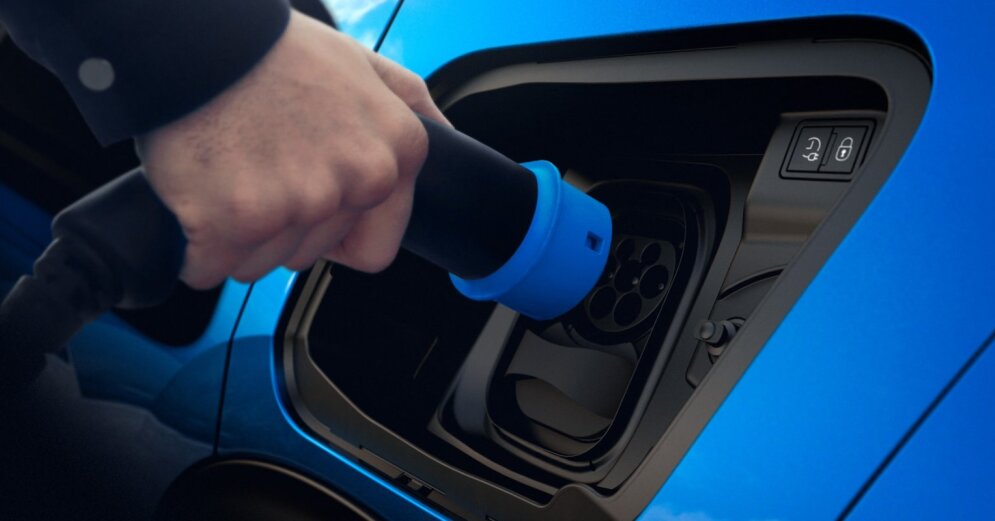For several months, a not very pleasant trend has been observed: the prices of gasoline and diesel fuel are rising rapidly and have already reached almost two euros per liter. Looking for ways to reduce fuel costs, some consider replacing their current car with a newer and more economical one, or even taking an even more radical step – buying an electric car. Will an electric car really save money and make driving cheaper?
–
–
Content will continue after the ad
Advertising
–
Prerequisite – must be charged at home
Fuel price statistics do not bode well. In the first week of January 2022, the price of a liter of gasoline in Latvia was approximately EUR 1.46, while a liter of diesel cost EUR 1.30. Less than half a year later, at the beginning of May, there was a significant price increase – a liter of gasoline cost already 1.94 euros, but diesel fuel at one point even overtook gasoline. Currently, a liter of diesel fuel costs 1.86 euros. Positive winds of the future are not felt yet.
In order for the wallet not to become completely thin, of course, you have to think about how to reduce expenses for fuel. One option is to choose a newer and more economical car. Another option is to buy an electric car. The second option, however, requires evaluating not only your wishes, but also your real expenses.
“If you can’t charge an electric car at home or at work, it’s better not to even think about it. Charging costs at public stations are quite high, and in the end the costs per kilometer are not lower than in the case of gasoline and diesel fuel. People often come to us and say they want an electric car, but they live in an apartment building and cannot install a home station, so they plan to use public options. We explain to such customers that it will be neither cheaper nor more convenient,” emphasizes Laurins Boguševičs, manager of car dealer “eDOW”.
If the potential owner of an electric car theoretically has access to the most convenient and cheapest charging at home, then the estimated operating costs can be calculated and find out which option is actually cheaper.
The higher price is offset by cheaper maintenance
An example can be a model available in all versions of energy types, for example “Peugeot 2008” city SUV, which is available with a wide range of engines – gasoline, diesel and also a fully electric version. This French crossover with a 130-horsepower gasoline engine and an eight-speed automatic transmission costs 28,700 euros. If you choose a diesel engine of the same power with the same automatic transmission, the car will be slightly more expensive – 29,500 euros. On the other hand, the electric “e-2008” in the same configuration will cost 40,300 euros.
The price difference between the internal combustion and electric models is more than 10,000 euros, but people can take advantage of the 4,500 euros of state aid that electric car buyers are entitled to. This reduces the price difference by almost half – to 7,100 euros compared to the gasoline version and to 6,300 euros compared to the diesel version.
If it still seems like a lot, then it’s worth calculating the cost of driving. “Peugeot 2008” with a gasoline engine consumes an average of 5.9 liters per 100 km (according to WLTP data). So, according to current prices, such a trip would cost 11.46 euros. The diesel version is more economical – the average consumption is 4.8 liters (according to WLTP) or 8.93 euros per 100 kilometers.
When calculating the “fuel” expenses of the electric “Peugeot e-2008”, two options should be taken into account – charging at public stations and charging at home. The average electricity consumption of this electric car per 100 kilometers is 16.1 kWh. At the public point, you will have to pay about five euros for it (depending on the station). But the situation is radically different when it comes to charging at home. If we assume that the price per kilowatt-hour is 0.2 euros, charging for 100 kilometers during the day will cost 3.22 euros. On the other hand, by renewing the reserves at night, you can save even more – if you have a favorable night tariff for electricity at home, then the price of a kilowatt hour can even be reduced by half, and thus the expenses will be less than two euros.
When calculating according to the above-mentioned prices, a distance of 100,000 kilometers with a gasoline model will cost 11,460 euros, with a diesel version – 8,930 euros, and with an electric model and charging at home – 2,000 to 3,220 euros. Thus, it turns out which electric variant is ultimately the most economically advantageous.
But there are other bonuses as well
Although fuel or electricity prices alone make a significant difference in cost, there are several other factors to consider in comparative calculations. “Until now, we have only looked at fuel and electricity expenses, but it is also not unimportant that an electric car is significantly cheaper to maintain and maintain, more favorable leasing conditions, free parking spaces, etc. Adding up all potential expenses, even the smallest ones, in the end we get a bonus of several thousand euros for a good electric car. This, of course, will allow the expensive purchase to pay off faster. It should also be noted that as the price of fuel increases, the price of electricity will also increase. However, the increase in the price of gasoline and diesel fuel is much higher than that of electricity, and this fact makes the final result of the calculation in favor of the electric car even more significant, ” says Laurins Bogušević.
Therefore, when considering whether to choose an internal combustion engine model or an electric car, it is important to consider several factors. However, it is already clear – if the conditions are favorable, an initially more expensive electric car will save so much in the long term that it will become more profitable than a diesel and gasoline model.
–


